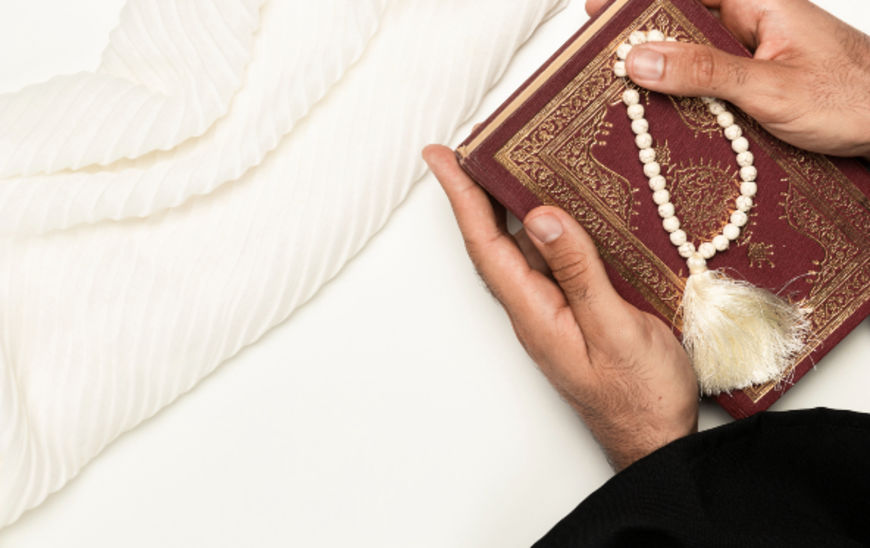
In Islam, prayer (salah) is the foundation of a believer’s faith and a direct way to communicate with Allah. Beyond the five daily fard (obligatory) prayers, there are Sunnah (supererogatory/optional) prayers that the Prophet Muhammad (peace be upon him) regularly performed and encouraged.
The Sunnah prayers hold great spiritual value. They reflect devotion, humility, and love for Allah. While they are not obligatory, they complete any shortcomings in our obligatory prayers and bring immense rewards.
.jpg)
Difference Between Obligatory and Sunnah Prayers
Obligatory (fard) prayers are mandatory for every Muslim — Fajr, Dhuhr, Asr, Maghrib, and Isha. Neglecting them without valid reason is considered sinful.
Sunnah prayers are voluntary acts of worship that enhance spiritual growth. They are a sign of sincerity and a desire to follow the Prophet’s footsteps. Performing them consistently shows deep love for Allah and His Messenger.
“My servant does not draw near to Me with anything more beloved to Me than the religious duties I have imposed upon him, and My servant continues to draw near to Me with supererogatory works so that I shall love him.”
Types of Sunnah Prayers
Sunnah prayers are of several kinds — some are closely related to obligatory prayers, while others are performed independently.
.png)
Sunnah Rawatib (Regular Sunnah Prayers)
These are the Sunnah prayers connected to the five daily obligatory prayers, performed before or after them:
- Fajr: 2 rak‘ahs before
- Dhuhr: 2 or 4 before, 2 after
- Maghrib: 2 after
- Isha: 2 after
“Whoever prays twelve rak‘ahs each day voluntarily, Allah will build for him a house in Paradise.”
Duha (Forenoon) Prayer
The Duha prayer is performed after sunrise until just before noon. It is known as the “prayer of the grateful,” reflecting gratitude for health and blessings.
Tahajjud (Night Prayer)
Tahajjud is among the most beloved acts of worship. Offered in the last part of the night after waking from sleep, it strengthens the bond with Allah and is a moment of deep spiritual reflection.
Witr Prayer
Witr — literally “odd-numbered” — is performed after the Isha prayer, usually as one, three, five, or more rak‘ahs. The Prophet (PBUH) never missed Witr and considered it an important part of nightly worship.
.jpg)
Other Voluntary Prayers
- Salat al-Istikhara: Prayer for seeking guidance.
- Salat al-Tasbih: Prayer for glorifying Allah.
- Salat al-Awwabin: Often performed after Maghrib to seek forgiveness.
Rewards and Benefits of Sunnah Prayers
Sunnah prayers are a source of countless blessings:
- Spiritual purification: They purify the soul and strengthen faith.
- Completion of obligatory prayers: They help make up for deficiencies in fard prayers.
- Protection from sin: Regular voluntary worship acts as a shield against temptation.
- Divine love and closeness: Allah loves those who increase in voluntary acts of worship.
Common Mistakes and Misconceptions
Many misunderstand or neglect Sunnah prayers due to lack of time or awareness. Common mistakes include:
- Confusing cultural habits with Sunnah — Sunnah specifically refers to the Prophet’s actions with spiritual foundation.
- Skipping Sunnah prayers regularly — even though optional, they strengthen one’s relationship with Allah.
- Incorrect timing or number of rak‘ahs — learning the correct structure ensures prayers are performed as intended.
How to Incorporate Sunnah Prayers into Daily Routine
Adding Sunnah prayers to your schedule doesn’t require major changes. Practical steps:
- Start small: Begin with two rak‘ahs before Fajr or two after Maghrib.
- Be consistent: Regularity matters more than quantity.
- Pray with sincerity: Focus on intention rather than perfection.
- Use reminders: Set alarms or pair Sunnah prayers with daily habits.
Following the example of Prophet Muhammad (PBUH) ensures that every prayer is meaningful. Over time, these prayers bring peace, discipline, and spiritual growth.
Sunnah prayers are a gift from Allah — a way to earn His love and mercy beyond obligatory acts of worship. They embody devotion, gratitude, and humility. By performing them regularly, Muslims not only imitate the Prophet’s noble example but also gain tranquility and closeness to their Creator. Performing supererogatory prayers transforms ordinary days into moments of spiritual connection, strengthening faith and illuminating the heart with divine light.




 Jewelry
Jewelry Silver amber jewelry
Silver amber jewelry Amber pictures
Amber pictures Souvenirs
Souvenirs